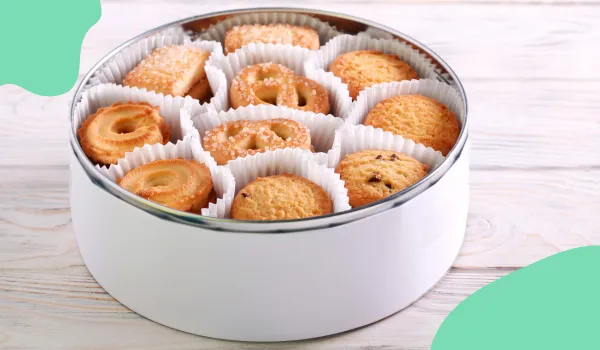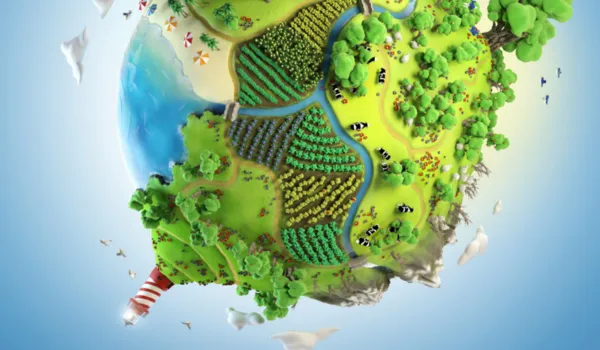Say Goodbye To Clutter! Learn How To Become A Minimalist & Start Living With Less
Escape the chaos of cluttered spaces and embrace the liberating art of minimalism, as we reveal the ultimate roadmap to declutter your life and find serenity in living with less.
Are you ready to break free from the chaos of clutter and make space for what truly matters in your life? Becoming a minimalist can be the key to unlocking a happier, more fulfilling existence.
In this blog post, we’ll walk you through simple yet transformative steps that will help you embrace minimalism one step at a time. From decluttering your home to cultivating positive habits, these tips are designed for eco-conscious individuals who want to live simply without sacrificing quality or comfort.
Key Takeaways
- Minimalism is the intentional practice of living with less by promoting clarity, purpose, and intentionality.
- Becoming a minimalist involves assessing your possessions and goals, decluttering your home and schedule, practicing mindfulness, adopting a minimalist mindset, and embracing slow living.
- Prioritizing experiences over material possessions is a primary goal of minimalism. This means shifting focus from acquiring more things towards investing in fulfilling experiences that bring joy and happiness.
- Ultimately, becoming a minimalist can profoundly transform your life by providing greater fulfillment through meaningful personal experiences while reducing stress levels and environmental impact.
Understanding The Concept And Benefits Of Minimalism

Minimalism is the intentional practice of living with less, and understanding its benefits can lead to a simpler, more fulfilling life.
Defining Minimalism And Its Benefits
Minimalism, at its core, is a lifestyle choice centered around the idea of living with less by promoting clarity, purpose, and intentionality.
Get Your Hand on Your Eco-Friendly Living Starter Guide!
It’s about prioritizing what truly matters to you and removing any excess clutter that detracts from your values.
Embracing minimalism offers numerous benefits while catering to the desires of many eco-conscious individuals. Not only does it lead to reduced stress and anxiety due to decluttered spaces, but it also fosters increased productivity and focus by eliminating unnecessary distractions.
Moreover, choosing quality over quantity can result in saved money which may be directed towards experiences or investments rather than material possessions.
How Minimalism Can Change Your Life
Embracing minimalism can profoundly transform your life in numerous ways, providing a clearer path to focus on what genuinely matters. For eco-conscious individuals who care deeply about the environment and its impact on it, adopting a minimalist lifestyle can significantly decrease unnecessary consumption and waste.
The benefits of minimalist living extend beyond environmental concerns as well. For example, by decluttering your home and simplifying your schedule, you are likely to experience reduced stress levels and improved mental health.
Living minimally also means that there will be fewer distractions around you competing for attention; this allows for enhanced productivity alongside increased mindfulness during daily activities. You’ll notice an improvement in overall well-being as the goal of minimalism encourages intentionality towards every aspect of life – from relationships and work-life balance to personal growth and self-care.
With fewer things to worry about maintaining or organizing, the minimalist journey provides an opportunity for deeper introspection, which often leads to greater self-awareness, gratitude, and happiness.
By letting go of excess clutter both physically and mentally, you enable space for inner growth while simultaneously minimizing negative environmental impacts.
Steps To Becoming A Minimalist
To become a minimalist, start by assessing your possessions and goals, decluttering your home and schedule, practicing mindfulness, adopting a minimalist mindset, and embracing slow living – discover how these steps can change your life for the better!
Assess Your Current Possessions And Identify Your Goals
Taking the first step towards minimalism involves evaluating your current possessions and setting clear goals for your minimalist journey.
Begin by doing an inventory of everything you own, from clothing to kitchen appliances, and consider each item’s purpose in your life.
As you examine your possessions, think about what you want to achieve through minimalism. Perhaps it’s reducing clutter and stress in your home or minimizing waste while embracing more eco-friendly habits.
By establishing specific objectives early on, you’ll have a clearer direction for your transition into minimalist living and can make informed decisions as you declutter and simplify various aspects of your life.
Declutter Your Home And Simplify Your Schedule

To live a minimalist lifestyle, it’s important to declutter your home and simplify your schedule. Start by assessing what you own and identifying your goals for simplifying.
Then, begin the decluttering process one room at a time. Ask yourself if each item brings value to your life and if you really need it. Consider donating or selling items that no longer serve a purpose.
Simplifying your schedule requires intentional planning and prioritizing of activities that align with your values and goals. Evaluate commitments and let go of those that don’t add value or bring joy to your life.
Be realistic about how much you can realistically handle without causing stress or burnout.
Practice Mindfulness And Let Go Of Material Possessions

One of the key steps to becoming a minimalist is practicing mindfulness and letting go of material possessions. This involves being present at the moment, evaluating our needs versus wants, and making conscious choices about what we allow into our lives.
For example, instead of accumulating more clothes or gadgets that will eventually end up unused, minimalists embrace simplicity and prioritize quality over quantity.
This mindset not only leads to less stress but also reduces environmental impact by consuming fewer resources overall.
Adopt A Minimalist Mindset

Adopting a minimalist mindset is crucial to living a simple and fulfilling life. It’s not just about owning less; it’s also about valuing experiences over possessions, being mindful of your time and resources, and embracing gratitude in all areas of your life.
One way to start adopting this mindset is by redefining your relationship with material possessions. Instead of buying things for the sake of having them, think mindfully about what truly adds value to your life.
Another way to embrace minimalism is by cultivating mindfulness in everyday activities. Take the time to appreciate small moments throughout the day instead of constantly rushing from one thing to another.
This can be as simple as savoring a cup of tea or taking a deep breath before starting a new task.
Overall, adopting a minimalist mindset takes practice, but it’s worth it for the freedom and simplicity it brings into our lives.
Embrace Slow Living
Embracing slow living is a key component of minimalist living. It’s about taking the time to savor life’s simple pleasures and enjoy the present moment rather than always being in a rush.
By embracing slow living as part of your minimalist journey, you can reduce stress levels and feel more content with what you have. As you simplify your life by getting rid of excess clutter and commitments, you’ll have more time for self-care and relaxation.
Plus, adopting a slower pace can benefit the environment by reducing waste and carbon emissions associated with consumerism.
Tips For Sustaining A Minimalist Lifestyle

Prioritize experiences over material possessions, be intentional with your time and resources, evaluate possessions and embrace simplicity and gratitude, and practice mindful consumption to reduce environmental impact.
Prioritize Experiences Over Material Possessions
One of the primary goals of minimalist living is to prioritize experiences over material possessions. This means shifting your focus from acquiring more things to investing in fulfilling experiences that bring joy and happiness.
For example, instead of spending money on expensive gadgets or designer clothing, you could use those resources to travel or take up a new hobby. Traveling allows you to immerse yourself in different cultures and gain a fresh perspective on life, while hobbies like cooking or painting can cultivate creativity and provide relaxation.
Ultimately, prioritizing experiences leads to greater fulfillment as they offer something tangible beyond just accumulating more things.
Be Intentional With Your Time And Resources
Living a minimalist lifestyle means being mindful of how you spend your time and resources. Being intentional with your actions can help enhance the quality of your life while reducing stress.
It’s important to prioritize activities that align with our values in order to live more fully and authentically. Consider which areas of your life are most important and focus on them first.
For example, if spending time with family is essential, make sure you set aside regular date nights or plan special outings together. You may also want to evaluate other commitments, such as work obligations or social events that don’t align with your goals, and learn to say no when necessary.
Evaluate Possessions And Embrace Simplicity And Gratitude

To sustain a minimalist lifestyle, it’s essential to evaluate possessions regularly and embrace simplicity and gratitude. This means taking an honest look at the things you own and considering if they’re adding value to your life.
If not, it might be time to let them go.
Embracing simplicity also means finding satisfaction in fewer material possessions and instead prioritizing experiences over things. It can mean spending more quality time with loved ones, enjoying nature, or pursuing hobbies that align with your values.
By embracing gratitude, you’ll appreciate what you have rather than feeling like you always need more. Research shows that practicing gratitude reduces stress levels and promotes overall well-being.
Mindful Consumption And Environmental Impact
Adopting a minimalist lifestyle and practicing mindful consumption can greatly reduce our environmental impact. By buying only what we truly need, we decrease the demand for unnecessary production and resources used in manufacturing.
Mindful consumption involves being intentional with our purchases, considering their impact on both ourselves and the environment. For example, opting for reusable items such as water bottles or cloth bags instead of single-use plastics can make a significant difference over time.
Additionally, supporting ethical brands that prioritize sustainability can further promote responsible consumption habits while reducing harm to the planet.
Conclusion: The Freedom And Simplicity Of Minimalism

In conclusion, becoming a minimalist is all about prioritizing what truly matters in your life and letting go of the excess clutter that weighs you down.
By taking small steps to declutter and simplify your possessions, schedule, and mindset, you can experience the freedom and simplicity that come with living a minimalist lifestyle.
Remember to be patient with yourself during this process and focus on your goals for minimalism. With mindfulness and intentionality, you can create a life that is not only more sustainable but also more fulfilling.
FAQ
What is minimalism?
Minimalism is a lifestyle where you choose to live with less. It’s about decluttering and simplifying your life, so you can focus on what really matters.
What are the benefits of minimalist living?
There are many benefits to minimalist living. Living with less clutter can reduce stress, increase happiness, and improve your overall well-being. It can also help you save money and be more mindful of your purchases.
How do I become a minimalist?
There are many ways to become a minimalist. Start by decluttering your home and getting rid of things you no longer need. Consider downsizing your living arrangements and be mindful of what you bring into your home. Buying less and letting go of things you don’t need can also help.
What is a minimalist home?
A minimalist home is a home that is free of clutter and unnecessary items. It is a space that is clean, organized, and only contains items that are essential or bring you joy.
How do I declutter?
Start by going through each area of your home and sorting items into categories: keep, donate, sell, or toss. Be honest with yourself about what you really need and what is just taking up space. Letting go of things can be difficult, but it can also be liberating.
Is it possible to live a minimalist lifestyle without a tiny house?
Absolutely! Minimalism isn’t just about living in a tiny house. It’s about making intentional choices to live with less and simplify your life. You can live a minimalist lifestyle no matter where you currently reside.
What if I already live a minimalist lifestyle?
If you’re already living a minimalist lifestyle, that’s great! But there’s always room for improvement. Consider reevaluating the items in your home and letting go of anything that no longer brings you joy or serves a purpose.
What if I don’t have the time to declutter?
It can be overwhelming to tackle a big decluttering project, but you don’t have to do it all at once. Start small by decluttering one area of your home at a time. Even five minutes a day can make a big difference over time.
What items should I bring into my life as a minimalist?
As a minimalist, you should only bring things into your life that bring you joy or serve a purpose. Consider investing in high-quality items that will last a long time and bring you happiness every time you use them.
Can you be a minimalist and still enjoy home decor?
Yes! Minimalism isn’t about living in a sterile environment with no personality. You can still enjoy home decor as a minimalist, but it’s important to be intentional about what you bring into your home and make sure it serves a purpose.
How do I maintain a clutter-free home on my minimalism journey?
Maintaining a clutter-free home is an ongoing process. Make it a habit to regularly evaluate the items in your home and let go of anything that no longer serves a purpose or brings you joy. Be intentional about what you bring into your home, and make sure it aligns with your minimalist lifestyle.







